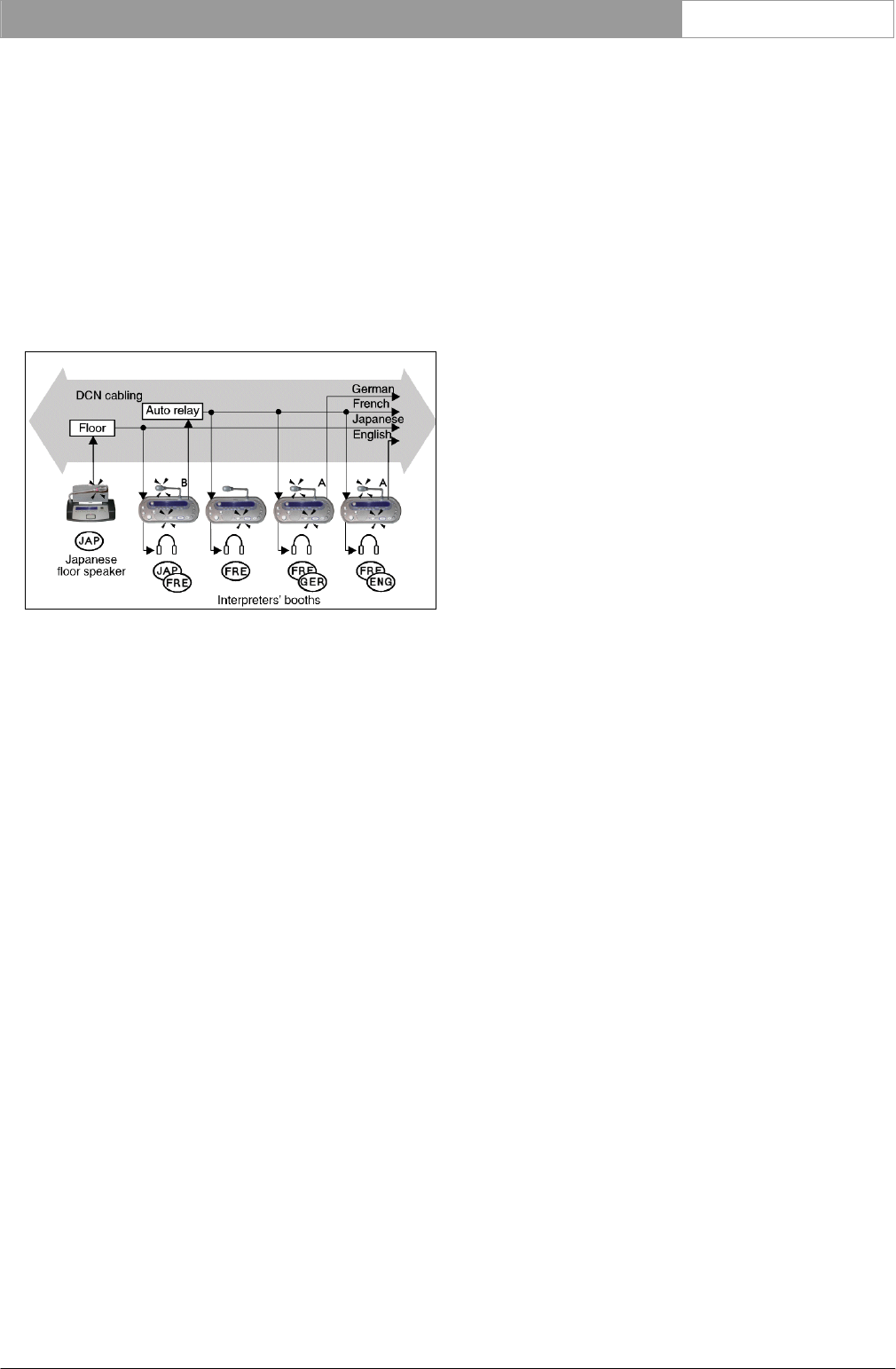
DCN Next Generation Simultaneous Interpretation en | 5
Bosch Security Systems B.V. | 2005 September | 9922 141 70363
rather than the floor language can receive it using the
incoming channel selectors on their interpreter units.
If the automatic relay facility is used, then the
transfer interpretation is automatically fed to
interpreters headphones instead of the difficult-to
understand floor language. This automatic facility
eliminates both the delay caused by manually
switching over and the possibility of the interpreter
selecting the incorrect channel.
The example on the following page demonstrates
how ‘auto relay’ works:
Figure 2 An example of ‘auto relay’
The floor language - Japanese - is one that not all
European interpreters can understand. Therefore the
Japanese interpreter is assigned to interpret this into a
language, which will be understood by the other
interpreters - in this case, French. The input to the
other interpreters desks will not come from the floor,
but from the desk of the transfer interpreter. Thus the
other interpreters hear French and not Japanese
through their headphones.
This is accomplished as follows: the transfer
interpreter selects the B output on his/her interpreter
desk. All desks in the Japanese booth have been
preprogrammed for Auto Relay (for details of how to
do this, refer to paragraph 3.3.1), and for French on
channel 2 (explained in paragraph 3.3). The transfer
interpretation replaces the floor language as the input
to all interpreters desks in other booths where the
floor language is selected as the incoming audio
signal. The French interpreter at desk 2 has no
translating to do, as the transfer interpretation is
transmitted on the French channel by the Japanese
interpreter using the B output (channel 2 - French) on
his desk.
1.2.4 Microphone settings
There are three microphone settings possible;
interlock, override, or none (neither of the two). In
interlock mode, the active microphone must first be
turned off before any other microphones can become
active. In override mode, any microphone making a
request to speak will automatically override the
current active microphone and become active. If
none is chosen all microphones are merged. These
settings can be specified within a booth (i.e. between
desks) or between booths.


















